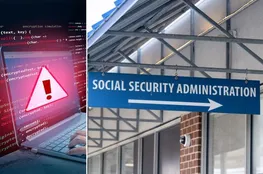In recent times, fraudulent activities have become more elaborate and frequent, making it crucial to safeguard ourselves against potential scams. A concerning story involves a client's parents who almost fell victim to a common phone scam. They received a call from someone pretending to be their grandson, claiming he was in jail and needed bail money. Though initially panicked, their intuition prompted them to verify the situation by contacting their actual grandson, who confirmed he was safe, allowing them to avoid falling into the scammer's trap.
Just as alarming, a hacking group known as USDoD breached the systems of National Public Data, responsible for background checks. This breach potentially exposed nearly 3 billion records, including sensitive personal data like Social Security numbers and addresses. Such incidents significantly elevate the risk of identity theft, emphasizing the urgent need for better security measures.
Considering these alarming developments, the rise in cybercrime is undeniable. According to Cybersecurity Ventures, global damage costs from cybercrimes are predicted to reach about $9.5 trillion by 2024. To effectively shield yourself from these threats, taking proactive steps is essential. Luckily, several straightforward actions can significantly enhance your security.
Firstly, freezing your credit with major credit reporting agencies—Equifax, Experian, and TransUnion—is a vital precaution. This process only takes a few minutes and can be done online or over the phone. Additionally, activate email or text notifications for your financial accounts to stay informed about any withdrawals or charges. Enabling multi-factor authentication adds a critical extra layer of security.
Moreover, setting up an account with the Social Security Administration can prevent hackers from doing so using your personal information. Utilizing a password manager allows for stronger password protection without the risk of forgetting them. Vigilance when handling emails is crucial; refrain from clicking links if uncertain of the sender's authenticity.
Installing antivirus software and a virtual private network (VPN) are highly recommended to protect your devices and ensure safe browsing. Antivirus software scans and monitors your computer for potential threats, while a VPN provides secure internet access, particularly within unsecured networks.
Ultimately, staying informed and trusting your instincts are key to safeguarding your financial data and personal information. Always verify unknown financial requests, employ recommended security practices, and maintain regular checks on your financial accounts. By remaining vigilant, you arm yourself with the best defense against potential fraud.
For further information, consider exploring related content such as the advantages of identity theft protection or understanding prevalent fraud types. If you have specific financial questions or concerns, consulting a licensed professional is always advisable.
























